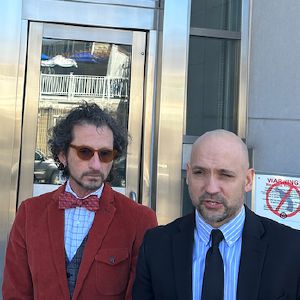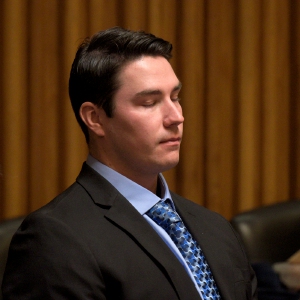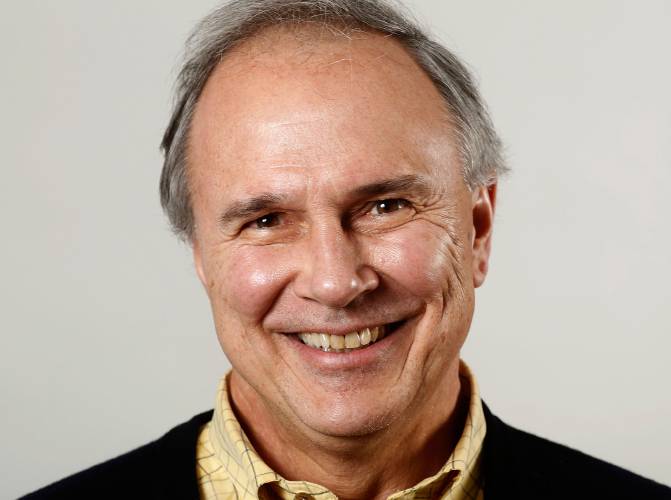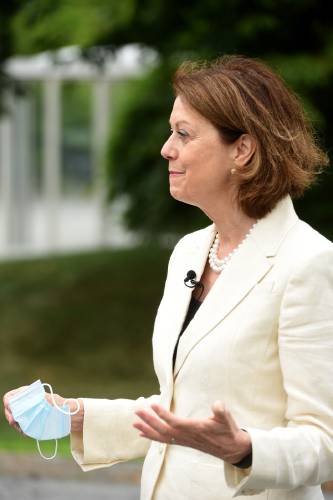Kenyon: DH CEO asserts decision to close infertility program was ‘thoughtfully evaluated’
|
Published: 04-05-2025 3:00 PM
Modified: 04-06-2025 4:19 PM |
Dartmouth Health CEO Joanne Conroy’s testimony this week in a fertility doctor’s wrongful termination lawsuit brought me back to the summer of 1973 and the U.S. Senate’s televised Watergate hearings where Republican Howard Baker, of Tennessee, famously asked: “What did the president know, and when did he know it?”
With that in mind: What did Conroy know about Dartmouth Hitchcock Medical Center’s decision to shut down its division of Reproductive Endocrinology and Infertility, or REI, and when did she know it?
Dartmouth Health’s attorneys had tried to keep Conroy from having to answer the question — or any others — in U.S. District Court. They filed a motion to quash her subpoena, arguing Conroy didn’t have any information that a jury might find useful. Besides, forcing Conroy to appear in a Burlington courtroom would require her to “step away from her critical duties as CEO for at least a day, if not more,” attorneys for law firms in Boston and Burlington maintained.
U.S. Magistrate Judge Kevin J. Doyle, who is presiding over the case, disagreed. A jury, he ruled, might benefit from hearing what Conroy had to say under oath before reaching a decision in Misty Blanchette Porter, M.D., v. Dartmouth Hitchcock Medical Center.
On Tuesday, Conroy was summoned to the witness stand. Under questioning by Norwich attorney Geoffrey Vitt, who heads Blanchette Porter’s legal team, Conroy made clear her role in the REI division’s closure.
“The decision was made before I came,” Conroy testified. “I do not know the specifics.”
It’s plausible, I suppose.
The REI division was deep-sixed in May 2017 — a month before Conroy’s hiring from a Massachusetts medical center was announced. She took the helm in early August.
Article continues after...
Yesterday's Most Read Articles
 Federal judge temporarily reinstates legal status for Dartmouth graduate student
Federal judge temporarily reinstates legal status for Dartmouth graduate student
 Prosecutors seek prison term of at least 30 years for man convicted at Dartmouth rape trial
Prosecutors seek prison term of at least 30 years for man convicted at Dartmouth rape trial
 Former Dartmouth ski team member dies in accident in California
Former Dartmouth ski team member dies in accident in California
 West Lebanon bridge reopens to vehicles
West Lebanon bridge reopens to vehicles
 Upper Valley donut maven Muriel Maville dies at 87
Upper Valley donut maven Muriel Maville dies at 87
At the time of the REI program’s closure, DHMC, the crown jewel in Dartmouth Health’s medical empire, was a rudderless ship. Dr. James Weinstein, who had been CEO since 2011, was approaching retirement. From court documents in Blanchette Porter’s lawsuit, it appears that Weinstein didn’t play an active role in the decision. He wasn’t scheduled to testify and I couldn’t find his name in either party’s list of trial exhibits, which includes scores of internal emails.
It wasn’t until Conroy had been in Lebanon for almost a month when she learned the REI division was no more, she informed the jury of six women and six men. She only found out during a weekly 30-minute “touch base” meeting with Dr. Ed Merrens, DHMC’s chief clinical officer, where they talked about “high level issues.”
Merrens’ REI “briefing” took “less than five minutes,” she said. But it was enough time for her to see that closing the service — and firing Blanchette Porter and two other fertility specialists — had been “thoughtfully evaluated,” Conroy testified.
Blanchette Porter claims her firing was, among other things, retaliatory for her lodging numerous complaints with the administration about “improper, incompetent and harmful conduct” by her two colleagues.
When it comes to REI, Conroy, who started her medical career as a physician before becoming a hospital executive, testified that she has “no expertise” in the field.
“I’m an anesthesiologist,” she told the jury. “I put (patients) to sleep and wake them up.”
Listening to Conroy during her 40 minutes of testimony, I sensed she lacked an appreciation for what the REI division meant to the Upper Valley.
Thousands of people with a wide range of reproductive hormonal and infertility issues sought care during the 30 years the program existed. In 1987, it produced the first successful birth via in vitro fertilization, or IVF, in northern New England. Patients must now travel to the Burlington area or southern New Hampshire for their nearest treatment options.
Patients weren’t the only ones left in the lurch. Since the closure, DHMC’s OB-GYN residents have had to go elsewhere for their REI training, including at the University of Vermont Medical Center in Burlington.
Blanchette Porter, who still lives in Norwich, now practices at UVM Medical Center, where her duties include helping train DHMC residents.
“She’s one of our most skilled surgeons,” Dr. Ira Bernstein, who served as chairman of UVM’s OB-GYN department for 12 years before retiring last year, testified on Tuesday afternoon. (The trial is expected to wrap up next week.)
Bernstein testified that he was surprised to learn in May 2017 of DHMC’s plan to stop offering REI services. “It certainly was an unusual move for an academic medical center,” he said.
Although DHMC’s REI division was “marginally profitable,” Dartmouth Health maintains that its sudden shuttering was a business decision, brought on by a shortage of nurses.
But as Judge Doyle pointed out in his order requiring Conroy to testify, “Dartmouth Health was not entirely transparent about its reasons for closing the division.”
On Tuesday, Vitt asked Conroy about an interview she had done with the Valley News shortly after starting the job. Figuring into DHMC’s decision to eliminate its REI division was the region’s “declining birth rate,” which made it difficult to attract “young up-and-coming providers” to the Upper Valley,” she said in the story.
“I do recall saying that,” Conroy testified. “However, that would apply to any (DHMC) practice. We have a hard time recruiting.”
If Conroy’s goal was to distance herself from what nearly eight years later remains a legal and public relations problem for DHMC, she probably succeeded.
But whether DHMC is successful in persuading a jury that Blanchette Porter’s claim of wrongful termination lacks merit?
Well, that’s still unknown.
Jim Kenyon can be reached at jkenyon@vnews.com.








 Upper Valley businesses feel the sting of rising cocoa prices
Upper Valley businesses feel the sting of rising cocoa prices New Hampshire House passes slimmed-down budget, as Ayotte vows to restore some cuts
New Hampshire House passes slimmed-down budget, as Ayotte vows to restore some cuts Board schedules revote on bond for Bethel and Royalton schools
Board schedules revote on bond for Bethel and Royalton schools
